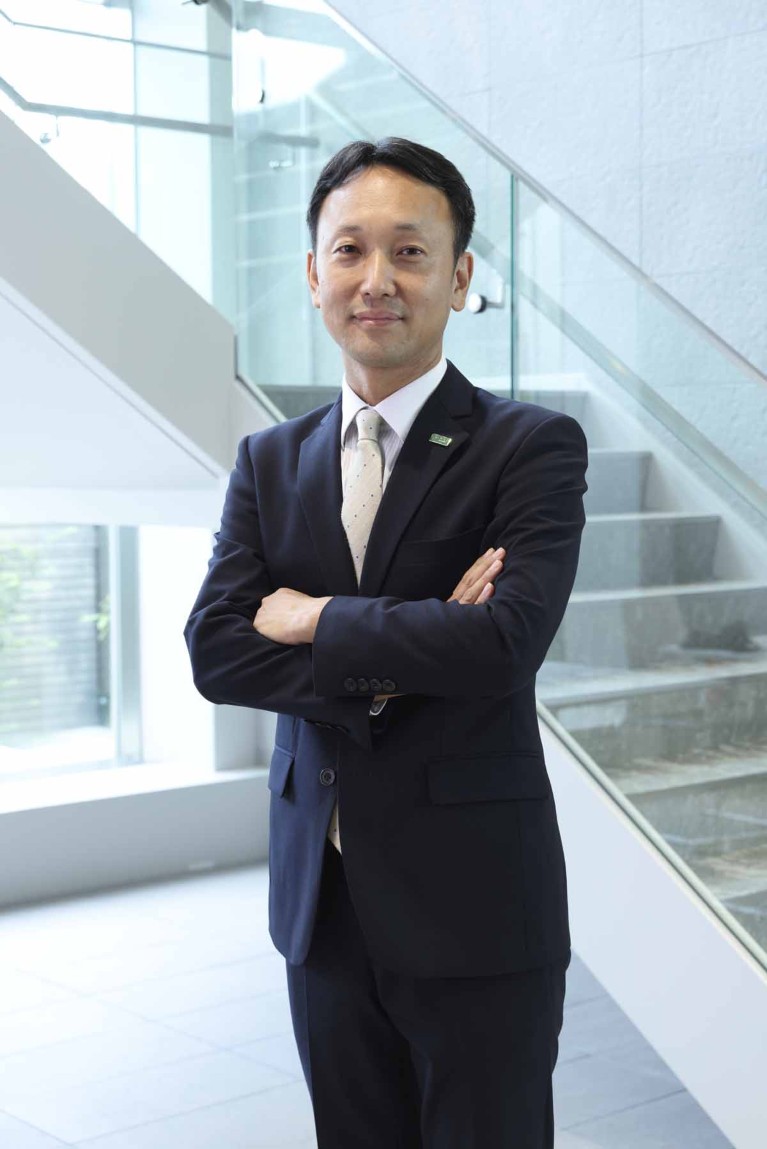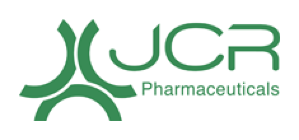With its industry-leading proprietary J-Brain Cargo technology platform, wide-ranging manufacturing capabilities in Japan, and expanding portfolio of biotherapeutics able to cross the blood–brain barrier, JCR Pharmaceuticals is on track both independently and through partnerships to address rare central nervous system diseases.

How did JCR develop the first biotherapeutic to cross the blood–brain barrier (BBB)?
Since its establishment 48 years ago, JCR has become a leader in Japan in the development of biotherapeutics including biosimilars, cell therapies, and regenerative medicines. Building on these successes, our chairman realized the company had to emphasize its research capabilities to remain competitive and establish a global footprint. Accordingly, JCR invested 15 years of research to overcome the challenges of brain delivery for biotherapeutics. During these years, no dogma was left unchallenged, and no model was considered too difficult when applying the best science to develop a pre-clinical and clinical-stage industry-leading pipeline for the treatment of lysosomal storage disorders (LSDs).
We were motivated by the belief that we could make a difference to individuals with rare central nervous system (CNS) diseases. This hit home for me when I met the mother of a child suffering from mucopolysaccharidosis type II (MPS II, also known as Hunter syndrome) at a medical congress. I remember her sharing her son’s heart-breaking story and the devastating consequences of the disease, including his daily struggles and how MPS II had dramatically impacted his development and quality of life.
This experience drove my commitment to research rare diseases. I knew JCR could do more. Existing enzyme replacement therapy (ERT) was already a game-changer for many patients. However, for more severe neuronopathic forms, existing ERT couldn’t help as it cannot cross the BBB into the CNS.
Subsequently, JCR’s research efforts yielded a promising approach through a proprietary molecular ‘Trojan horse’ technology called J-Brain Cargo, which effectively shuttled the missing enzyme in MPS II across the BBB to treat CNS symptoms. From there, we developed a therapy that could cross the BBB and treat somatic symptoms, which also demonstrated long-term safety and tolerability. I was humbled by JCR’s courage in challenging existing treatment paradigms, and its unwavering commitment to patients.
Where else does JCR differ from its competitors?
We have a long-term vision and strategy with a strong focus on research, and a long-standing investment in biomanufacturing, allowing us to develop multiple assets simultaneously and efficiently. We have launched and commercialized six therapeutics in Japan. The domestic revenue from these products supports our research and development. This differentiates us from venture-backed companies that do not have profits and rely on external funding.
In addition, we manufacture all our own products, including TEMCELL, the first allogeneic stem-cell product in Japan. This allows us to provide high-quality medicines without depending on contract manufacturers.
Our manufacturing capability is a core strength, and we have invested in building this capacity. We have five facilities in Japan making our own therapies. And in 2020, we partnered with AstraZeneca to produce 120 million doses of its COVID-19 vaccine for people living in Japan and southeast Asia.
Do you plan to use your industry-leading portfolio in the LSD space for other indications?
Our mission is to improve patients’ lives by leveraging our research and manufacturing expertise to advance innovative medicines. J-Brain Cargo enables us to develop therapies that cross the BBB and could treat other CNS indications, such as neurodegeneration, neuro-oncology, or neuro-inflammation.
However, establishing new therapeutic areas within JCR would be a significant challenge. Partnerships with companies with existing therapeutic modalities seeking a BBB technology-transfer route provide a perfect constellation of contributors to step into these indications. The royalty stream will also provide an income independent of our portfolio.
What are JCR’s globalization goals and do you plan to commercialize drugs internationally?
We began expanding our international footprint as we knew that focusing on rare disease drug development would not be fruitful. We built subsidiaries with regional clinical-development capabilities in areas where we can conduct clinical trials, including JCR Europe, JCR USA, and JCR do Brasil. In addition, we are building a labeling and distribution center in Luxembourg, and we acquired CNS-focused biopharmaceutical company ArmaGen, Inc. in 2020.
Our partnerships, including those with Takeda Pharmaceuticals, Alexion, and Angelini Pharma, have helped provide strong validation of J-Brain Cargo internationally. The Takeda partnership—our first major international partnership on an MPS II asset—aims to advance our phase 3 clinical trial for JR-141 (pabinafusp alfa) in individuals with Hunter syndrome. Future partnerships in LSDs and other conditions using J-Brain Cargo are also part of our acceleration strategy. Our international commercialization strategy is to recruit partners for markets outside Japan, while JCR retains domestic rights.
JCR’s partnerships have helped it become an international company. Do you anticipate further collaborations?
Partnerships are an integral part of JCR’s globalization strategy; those with Angelini Pharma and Alexion help to validate the J-Brain Cargo technology, as they are focused on CNS-related disorders, not LSDs. Focusing on LSDs was the first part of our strategy and was our proof-of-concept for J-Brain Cargo. Now that our technology is proven, we are expanding outside of LSDs. We are actively seeking additional partnerships to advance into spaces like neurodegeneration, neuro-inflammation, and neuro-oncology using J-Brain Cargo.


